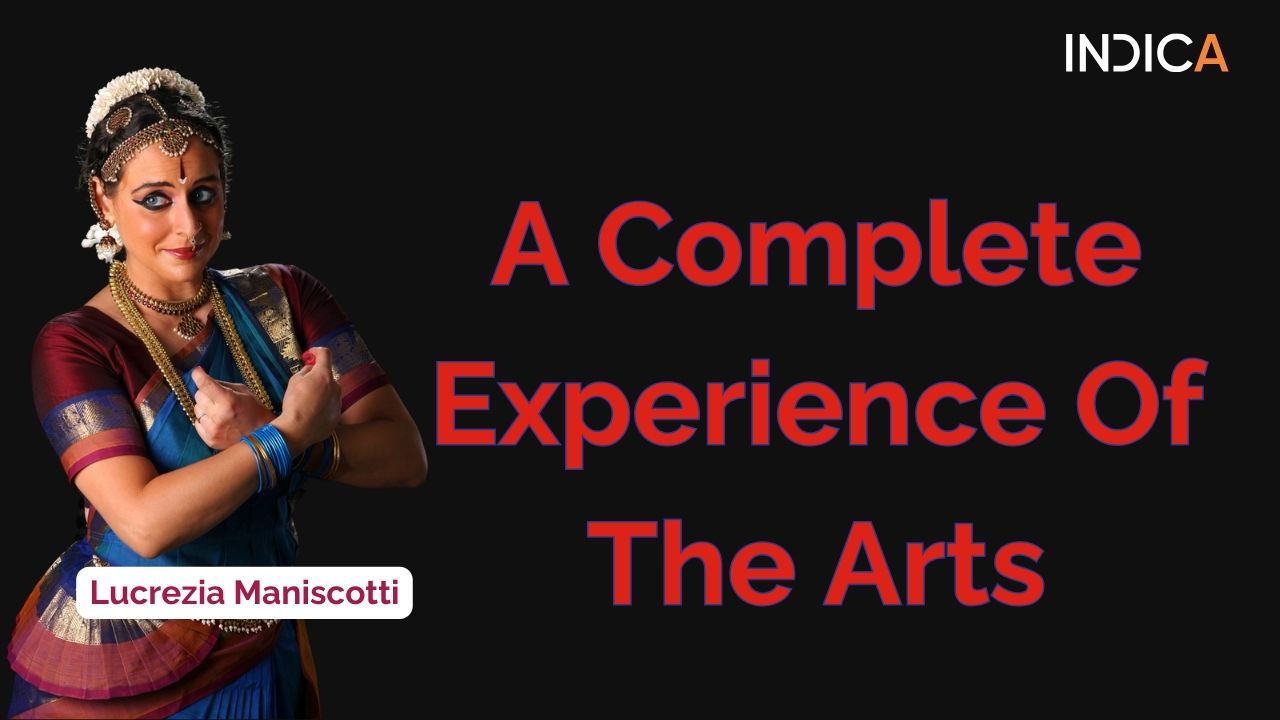Professor Joanna Jurewicz is an Indologist and cognitive linguist interested in human cognition and its relationship with culture. She has deep interest in early Sanskrit Indian texts (ca 13 BCE-5 CE) and in her words is tracking traces of Fire. She has written three books on the subject her latest being - Invisible Fire. Memory, Tradition and the Self in Early Hindu Philosophy, 2021. The earlier two volumes are - Fire and Cognition in the RigVeda (2010) and Fire, Death and Philosophy - A History of Ancient Indian Thinking (2016). In this intervew Professor Joanna Jurewicz speaks about her love for Indian texts and how “they enrich our knowledge about the human need to philosophize, to look for answers to basic questions about the origin of the world, its functioning, or the role of man.”
How did you get interested in Ancient Indian Vedic heritage. Is there a robust academic environment in Warsaw to pursue research on India?
I wanted to study philosophy. At that time, Poland was under Soviet occupation and my parents were afraid that I would only learn Marxist philosophy. As time has shown, they were wrong, but I was an obedient daughter and started looking for something else. And once my father, who was a doctor but also a humanist and who started to read the sacred texts of various cultures translated into European languages, offered me the Bhagavad Gita in a beautiful Polish translation, saying: "This might be of some interest for you." I was 16 then and I still remember reading the Bhagavad Gita in one of Warsaw's parks, it was a windy April day, the sky was changing like in a kaleidoscope, and I was sitting enchanted thinking "Yes, this is it! This is understanding the world and God yes very dear to me! " And I decided to go to Indology.
There were few Indologists in Poland then, it was the early 1980s, but I must mention four of my masters: Prof. Krzysztof Byrski - an expert in early Indian philosophy, Prof. Andrzej Ługowski - a Sanskrit teacher, Prof. Artur Karp - an anthropologist and Prof. Krzysztof Dębnicki - historian. These four paved the way for me to Indian philosophy, though each in its own way, of course. Now we have more specialists in our Department of South Asia Studies at the Faculty of Oriental Studies, but I think we, the students of those mentioned above, continue their tradition.
You occupy several important positions in academia in your country and Europe on Asian studies. What are the main areas of interest to people? Is it linguistics, Indology, Ayurveda Yoga, Vedanta and/or Hinduism or are there others focusing on modern India including cinema, tourism, textiles etc.
I think that all the topics you mentioned are a significant reason why young people study Indology. In our Department, we try to show them the Indian culture that emerges from the texts. When it comes to Sanskrit texts, it often turns out that, for example, yoga is something other than what is currently considered yoga in the West. In other words, we try to teach thinking and tradition which is different from the European one, as well as to show how elements of a given culture, taken out of their context, can change or diminish their original meaning.
You say "The early Indian texts open the way to the beginnings of human philosophical thinking and show that abstract and general thinking can be created in the oral tradition." You also say your research uses traditional philology and cognitive linguistics. How did you adapt/apply this to the oral system. Is it easily applicable?
Old Sanskrit texts such as the Ṛgveda and the Brāhmaṇas are arranged in a way that is difficult to understand even for someone who knows Sanskrit and Indian culture well. This, I believe, is due to the fact that there is a dramatic difference in the experience that influenced the thinking of these ancient philosophers and that which we share. Modern research in neuroscience shows that human thought is embodied, and therefore one must somehow recreate the experience of a culture in order to understand it. In general, this experience is not complicated - philosophical texts do not describe it, but draw from concepts created on its basis in a general way because the point is that the concepts derived from experience should be understandable to the recipients of the time.
Cognitive linguistics is a young branch of the humanities that studies the relationship between experience, thinking and language. It is assumed here that experience influences thinking (and vice versa), and these influences are reflected in linguistic expressions. Cognitive linguists propose models to understand how our thinking is expressed in language. These models capture the way in which concepts relating to experience express philosophical content. It turns out that they are especially useful in oral tradition which, on one hand, is grounded in experience and, on the other, uses synthetic and holistic concepts.

Katarzyna Ślaska, Director of Special Collections, University of Warsaw Library; Nagma M. Mallick, Ambassador of India to Poland; Prof Joanna Jurewicz
Fire is a central theme of the Veda, the "metaphysical principle underlying reality". It is eternal as this article points out: https://www.indictoday.com/long-reads/journey-here-to-eternity-vedic-ritual/. Is this of special interest to you in the light of Fire and Cognition in the Rgveda?
Yes, I believe that fire - both as a philosophical and ritualistic concept, realized in practices such as Agnyādhāna, Agnihotra, or Agnicayana - is the central concept of the Vedic philosophy. As part of this thinking, reality is understood in terms of fire, which, moreover, is internally contradictory, has its fiery and liquid aspects, which are alternately manifested in creation, in the functioning of the cosmos and in the person performing the ritual (both during his life and after death, when his relatives perform it for him).
In a later thought, attested, inter alia, by in the philosophical parts of the Epics, especially in the Mahābhārata, the concept of fire disappears from the cosmogonic and cosmological descriptions, but is still present at the level of human activity leading to liberation. Liberated people (as well as other beings, such as for example Rakṣasas) had fire within them that could be released, for example, when an angry seer cursed someone, and which could endanger the entire cosmos in the case of evil creatures. This is what my latest book "Invisible Fire. Memory, Tradition and the Self in Early Hindu Philosophy" deals with.
While unbroken the tradition undergoes change all the time. You write: A "diachronic approach allows me to track how the thought changed, how new concepts and theories appear and develop. It also allows me to propose possible reasons for these change." What new insights do you offer here from your other work Fire and Cognition in the Ṛgveda. How would you describe your experience researching how Indian thought progressed. What understanding does it offer humankind and academia.
On the one hand, my research shows that the most basic axioms of Indian philosophy, such as the belief in the fundamental role of cognition in the creation and existence of the world, the fact that reality can be known in states of consciousness different from everyday ones, or that after death, the immortal part of man is reborn on earth, arise already in Ṛgveda. Successive generations of philosophers take these axioms for granted and build their theories on them. On the other hand, when you know these oldest axioms, you can see how philosophy changes with changing experience and culture. These changes result from both geographical changes, changes in the social structure, with the emergence of heterodox philosophical and religious currents, such as Buddhism or Jainism. Indian philosophers were responding to these changes by redefining concepts and building new ones without questioning these fundamental foundations, as is the case with European philosophy built on the foundations coined in ancient Greece.
I think research into the oldest Indian philosophy is relevant to wider humanities research for several reasons. Firstly, they enrich our knowledge about the human need to philosophize, to look for answers to basic questions about the origin of the world, its functioning, or the role of man. Moreover, ancient Sanskrit texts were passed down orally in Brahminical families with such great care that a great deal of them has been preserved, although we know about lost schools and traditions anyway. However, compared to the Greek Presocratics thought, there are a great number of these texts. Thus, they are excellent sources for studying how abstract concepts and whole theories were created. The tools of cognitive linguistics are very useful for analyzing these processes.

What are your thoughts on Sanskrit and Cognition. Is the language an intrinsic vehicle of this philosophy. What are its links with Polish?
In line with the assumptions made by cognitive linguistics, language expresses thought, albeit only partially. It can be compared to the tip of an iceberg whose much larger base is hidden under water - that base is our thinking, often unconscious until it finds expression in language. But at the same time, thinking is shaped by language and culture as a whole. The Sanskrit of philosophical Indian texts changes with the culture: there is a great difference between the Sanskrit of the Ṛgveda hymns, the Sanskrit of the Brāhmaṇas or the Upaniṣads, not to mention epic Sanskrit. The hymns of Ṛgveda are sophisticated poetry, being the culmination of a powerful poetic tradition dating back, as one may suppose, to the Indo-European times. Black Yajurveda or commentaries of the Brāhmaṇas resemble lectures recorded on an audio tape, they are arranged in prose, they contain many emphatic pronouns or particles characteristic of an oral argument. Pre-Buddhist Upaniṣads are arranged in more literary prose. Later Upaniṣads and epic literature return to rhythmic stanzas. At the same time, from around the 6th century BC scientific literature is developing the founding treatises of which are like short notes taken by a teacher before a lecture, and it is impossible to understand them without commentaries which were composed much later.
It can therefore be seen that we are dealing with a great variety of both linguistic and literary forms. However, one can indicate at least two features of Sanskrit that made it possible to convey a philosophical thought in a special way. In the Ṛgveda, ambiguities in inflectional endings and the flexibility of syntax made it possible to create ambiguous expressions and sentences, and which in turn led to synthetic descriptions, thanks to which one stanza could capture the changes taking place in the cosmos, during the ritual and in man himself. This tendency to synthetic description remained in the later Sanskrit and was in accord with oral transmission of the texts. It is confirmed primarily in the ambiguity of words, which allowed for building holistic descriptions of reality, which was in line with the belief (dominant in my philosophy which I study) about the unity of being manifested in various manifestations and forms.
As for the relations between Sanskrit and Polish, they belong to the Indo-European language family. Polish, like Sanskrit, is inflectional, has almost the same number of cases, and there are words which sound almost identical, such as ”dva” (”two”) or ”brat” in Polish and ”bhrātṛ” in Sanskrit which means ”brother”.
The University Warsaw had put up verses from the Upaniṣads selected by you, which caught the attention of the Indian Embassy recently. Why did you select these verses? What is the message conveyed for you.
The new building of the University of Warsaw Library was opened on 15 December, 1999. On its front there are panels with important texts on knowledge and cognition in various languages of the world, including Sanskrit. I chose three passages. The first is the famous Sāvitrī mantra (Ṛgveda 3.62.10), in which the rising sun is asked to stimulate our thoughts, that is, to cognize. The second is an excerpt from the Muṇḍaka Upaniṣad 1.1.4-5 where two kinds of knowledge are mentioned. The lower are the individual sciences, the higher is the one that leads to Brahman. The third is part of Chapter 13 of the Bhagavad Gītā (7-11), which describes knowledge as not only a state of mind but also moral qualities. "Ignorance is just the opposite of it" (ajñānaṃ yad ato ‘nyathā). In this way, these passages show the most important aspects of the traditional Indian understanding of knowledge: it is what man asks God for, it describes both the world and the way to the highest, and having it also means moral perfection.
Does contemporary India attract you as much as ancient India? Have you been here?
Yes, modern India fascinates and delights me. I have been there several times and I have been able to see different places: I have been to Kashmir, Haridvar and Darjeeling, Kolkata and Puri, Delhi and Jaipur, and also to the south, in Kerala. However, sometimes I feel like someone who knows Greece from the time of Homer and gets lost in today's Athens. But that only deepens my curiosity about modern India. You could say I'm tracking traces of Fire.





